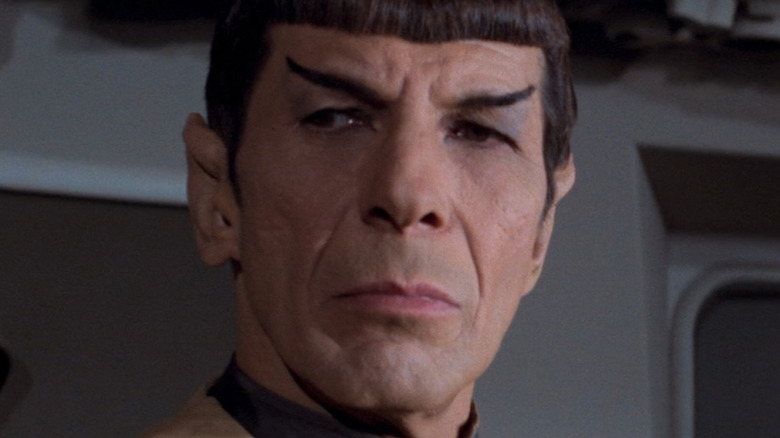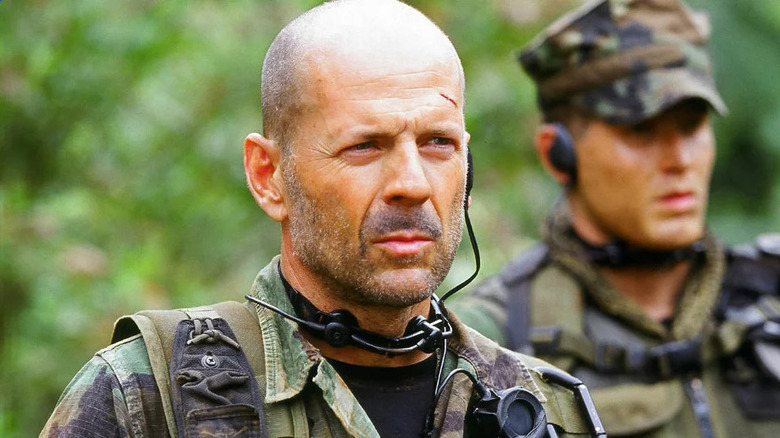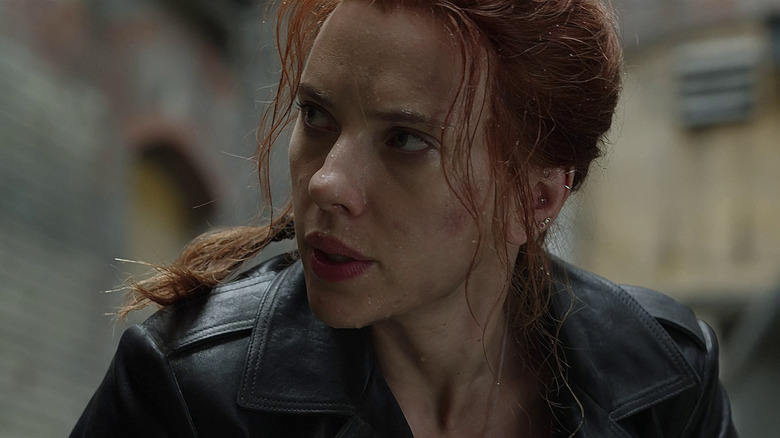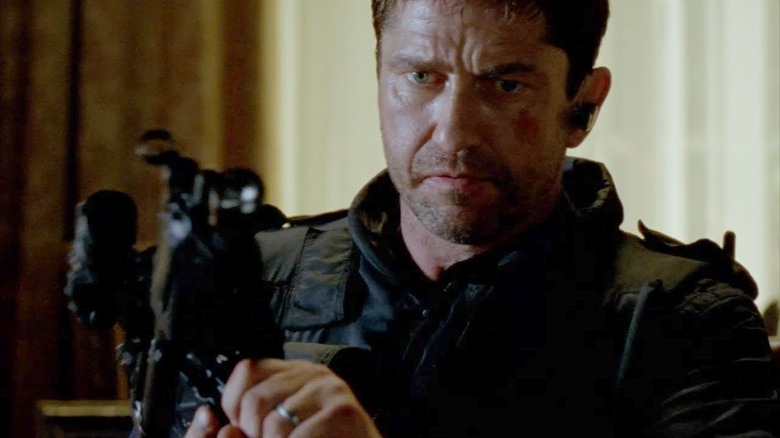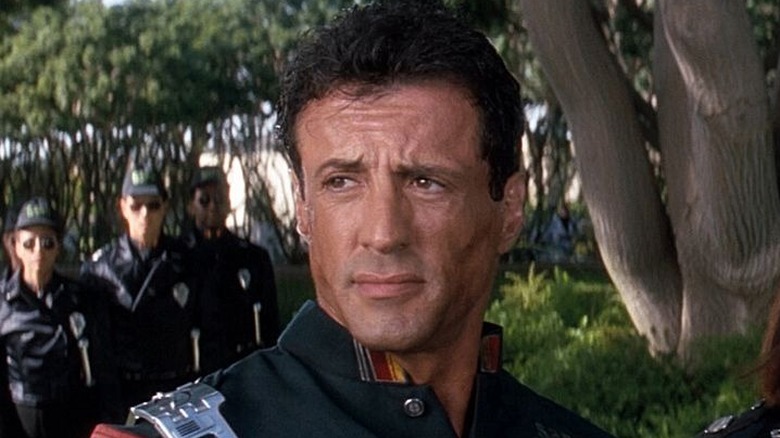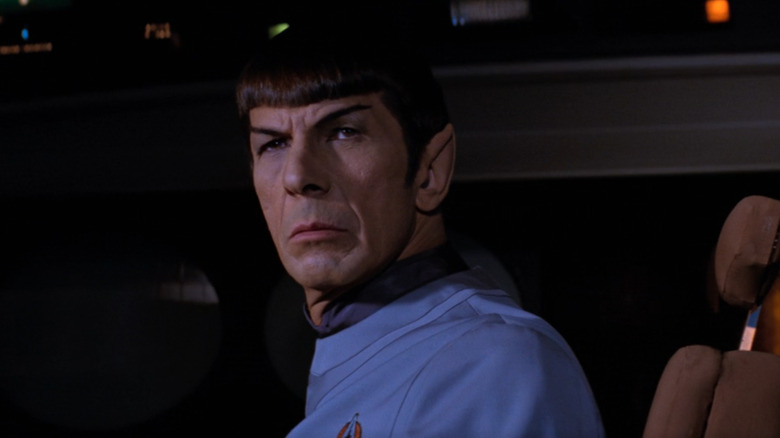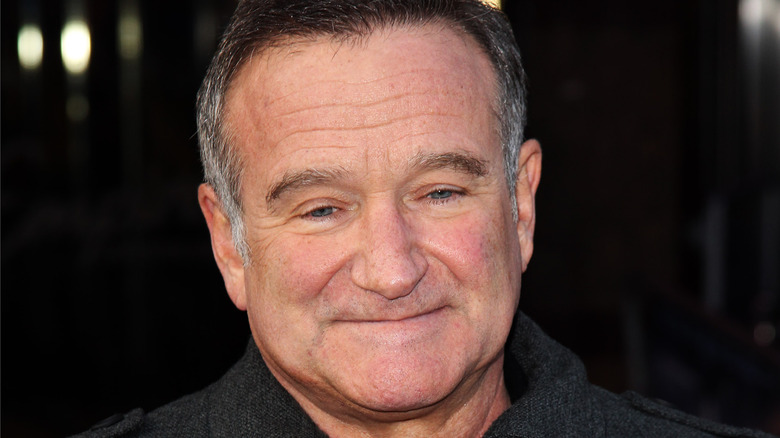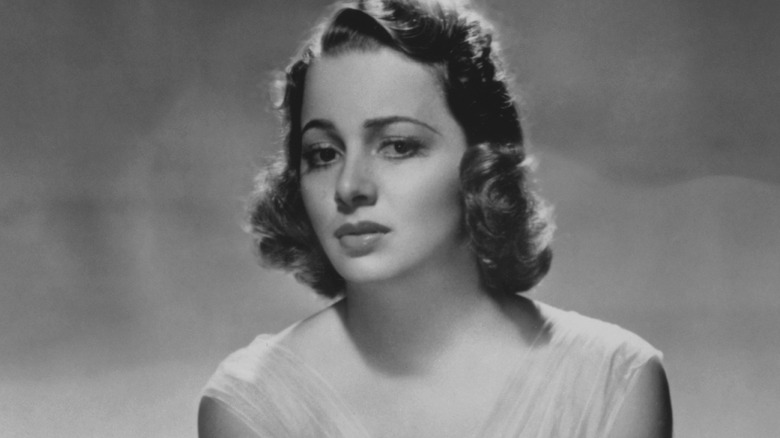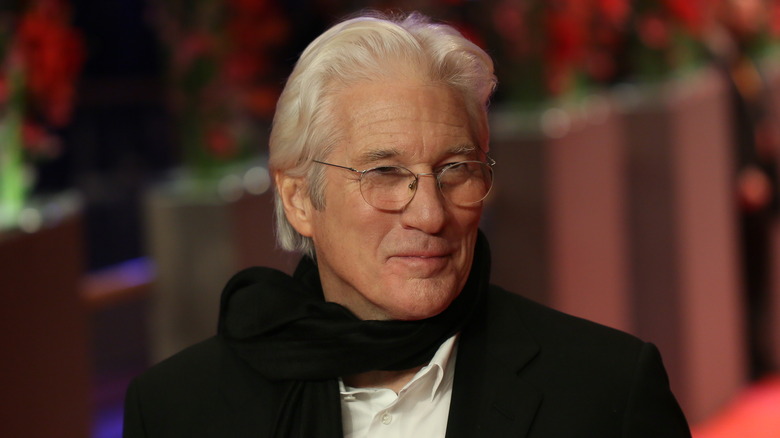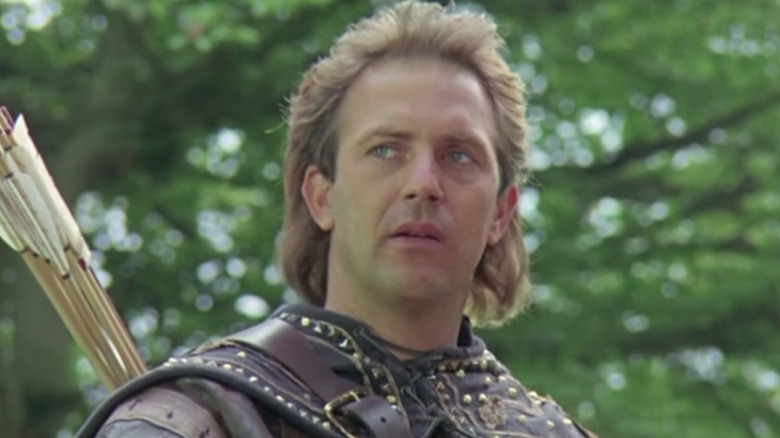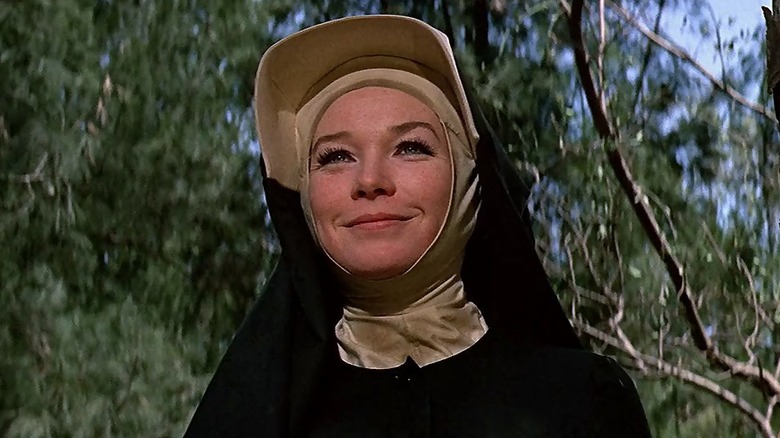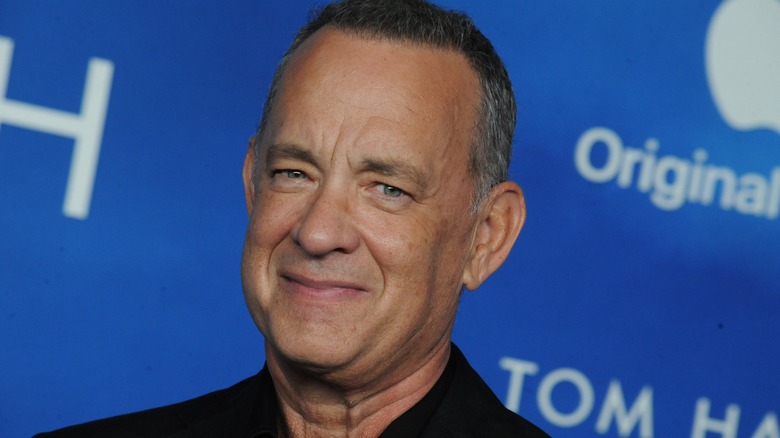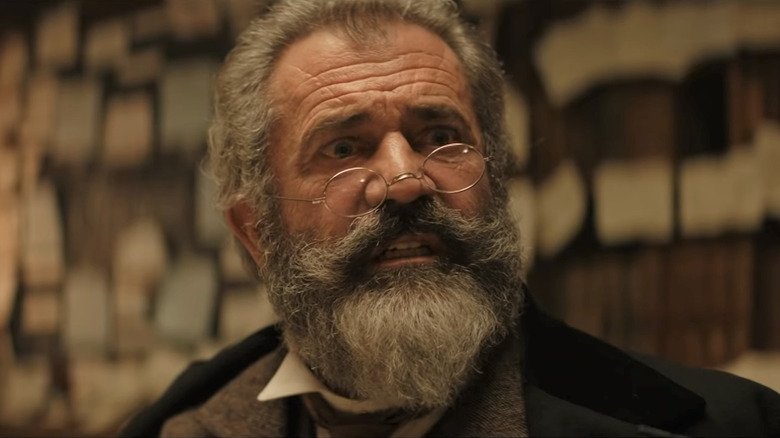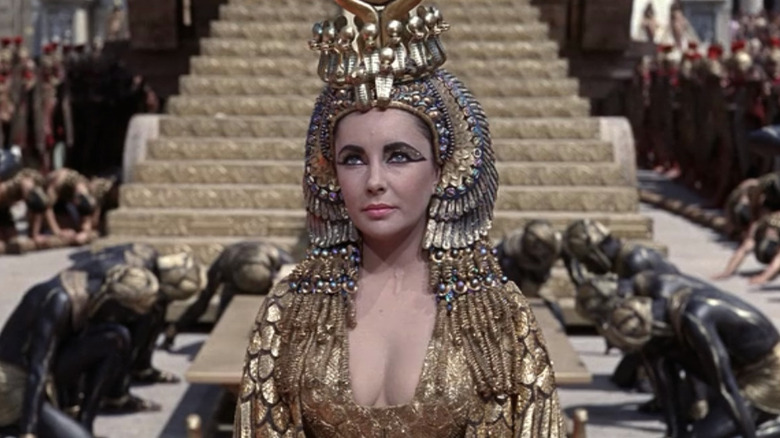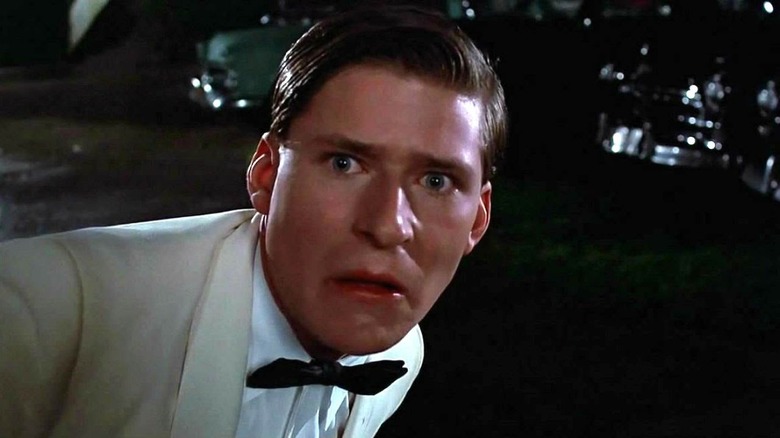Actors Who Hit Movie Studios With Major Lawsuits
"There's no business like show business," or so the song goes. But what happens when the business overshadows the show? In Hollywood, billions are made every year, and every movie made has big bucks riding on its success or failure. Contracts are meticulously written and drawn up to cover every contingency, and yet lawsuits over contractual disputes are no rarity. Studios have brought suit against stars for quitting a film, and even fans have brought lawsuits against movies for false advertising.
But sometimes, it's the actors who get miffed and hit back at the studio with a suit of their own. Whether it's allegations that producers mistreated them during production, a studio refusing to pay them promised cash, or a filmmaker breaking the delicate terms of their carefully crafted contracts, stars across Hollywood are often unimpressed when Hollywood power brokers try to push them around.
Some lawsuits are just filed to get an actor paid what they're owed. Others are out to set an important industry precedent to protect future stars. But here is a list of actors who've stepped up and struck back, hitting movie studios with major lawsuits.
Bruce Willis
Veteran action star Bruce Willis, best known as John McClane from the "Die Hard" franchise, was still very much in demand in 2003 when he starred in "Tears of the Sun." Directed by Antoine Fuqua, the film was a gritty war drama set in the midst of a civil war in Nigeria, with Willis playing a U.S. Navy Seal sent in on a rescue mission. With a sizable budget, the studio must have been disappointed with the movie's low box office haul, but that wouldn't be the end of their money problems involving the film.
Not long after its release, Willis turned around and laid a big fat lawsuit in Revolution Studios' lap, for injuries he had apparently sustained during production of its many action-packed scenes. As detailed in Variety, Willis claimed he had suffered "extreme mental, physical and emotional pain" following a stunt gone wrong in October 2002 during filming of an explosive sequence.
According to the actor, he'd been mistakenly struck in the head by what is known as a "ground squib" following the activation of pyrotechnics operated by the movie's special effects crew, who had intended it to simulate flying debris. Willis' representatives in the case also warned of further medical expenses that were likely to be incurred moving forward as he dealt with his injuries. More than a decade later, in 2022, friends of Willis feared that the aphasia diagnosis that forced his early retirement could be traced back to the incident, per The Sun.
Scarlett Johansson
In perhaps the most highly publicized actor-studio squabble in recent years, superstar Scarlett Johansson — the highest paid actress in Hollywood — sued the Walt Disney Company over participation profits from her 2021 Marvel superhero solo film, "Black Widow." Due mostly to the COVID-19 global pandemic, the film, which had originally been slated for a May 2020 release, was repeatedly pushed back, until it finally landed in theaters in July 2021. But with moviegoers still hesitant to return to theaters in large numbers at that time, Disney made the controversial decision to simultaneously release the film digitally on its Disney+ streaming service.
Unlike rival Warner Bros. Pictures, which streamed its films on HBO Max at the time for no additional charge, Disney made "Black Widow" available for a $29.99 fee. Johansson, whose contract had stipulated a payout based on theatrical grosses, wasn't happy about the split release, and filed suit, looking for damages to the tune of $50 million, according to Variety. In her filed claim she made the bold assertion that the dual release strategy was a deliberate attempt to keep money out of her pocket.
It was rumored that Marvel's Kevin Feige was livid about Disney's approach to both the film and their star (via IGN), but thankfully, cooler heads prevailed. Eventually, the two sides reached an amicable settlement, with the actress saying, "I am happy to have resolved our differences with Disney."
Gerard Butler
In the wake of "Black Widow" star Scarlett Johansson hitting Disney with accusations of short-shrifting her on profits, action star Gerard Butler filed his own claim against Nu Image and Millennium Media. Filed just a day after Johansson's, Butler's suit flew under the radar, but was no less explosive in its allegations. According to the Hollywood Reporter, Butler and his lawyers asserted that the studio had been hiding profits and under-reporting the money made on his 2013 action vehicle, "Olympus Has Fallen."
The blockbuster, directed by Antoine Fuqua ("The Magnificent Seven"), took in $172 million globally, according to industry tracking site The Numbers. It spawned a trilogy of films starring Butler, with the third film, "Angel Has Fallen," landing in 2019. The 2013 original, Butler claimed, had actually earned $17.5 million more than the studio reported to him, as he discovered after an auditor had examined the books. He even found an unreported $8 million in bonuses paid out to studio executives, and nearly a decade later he was demanding $10 million as compensation.
"Producers have earned tens of millions of dollars from 'Olympus,' but refuse to pay Butler a penny of the grosses and profits promised to him in the parties' agreement," the suit declared. "Butler worked with Defendants to create a highly successful movie franchise. He demands his fair share."
Sylvester Stallone
Veteran action hero Sylvester Stallone made his name pummeling his opponents in '70s and '80s classics like "First Blood," "Rocky," and "Cobra." But the studio behind one of his most popular '90s action flicks, "Demolition Man," probably never expected to get beaten in court by the star himself. The film teamed him with fellow star Wesley Snipes and newcomer Sandra Bullock in a sci-fi action adventure where he played John Spartan, a heroic cop from the past released from suspended animation to stop a diabolical villain in the future.
It was a modest success, one that Roger Ebert attributed to low expectations, but few fans of Stallone were disappointed. Over the years, "Demolition Man" has become a bona fide cult classic, and a favorite of '90s action film buffs. That's why it was all the more surprising when Stallone dropped a massive lawsuit on Warner Bros. Pictures — 24 years after it was released. Contending that the studio had used Hollywood accounting to make the film seem less profitable than it really was, Stallone wanted them to live up to the 15% profit participation he'd signed up for way back in the early '90s. According to the actor, he hadn't received any money for the film in almost two decades.
Incredibly, when the studio pushed back, Stallone went further, demanding money for other films he'd made for them, including "Tango and Cash" and "The Specialist." After a two-year court battle, Stallone reached a private settlement with the company (per Variety).
Leonard Nimoy
One of the stars of the original "Star Trek" television series, Leonard Nimoy would return to the role of Mr. Spock for eight additional feature films, two of which he'd direct himself. But getting Nimoy back into the pointed ears wasn't so easy when the franchise moved to the big screen for "Star Trek: The Motion Picture" in 1979. The actor was embroiled in a lawsuit against "Trek" studio Paramount at the time which, believe it or not, stemmed from action figures and lunchboxes sold after Nimoy had stopped playing the Vulcan science officer.
While many may not know it, "Star Trek" was arguably more popular in the 1970s after it had been canceled than it ever was when it was on the air. The decade saw the show gain popularity in syndicated reruns, while its merchandising expanded. Toys, games, comics, and model kits of all kinds proved popular, but the studio wasn't — not with Nimoy anyway, who sued Paramount over unauthorized use of his likeness.
According to the L.A. Times, it started when Nimoy became aware of Heineken beer ads using his face, which led to the discovery of more merchandise that had been created without his permission. He filed a lawsuit which still wasn't settled when it came time to make "Star Trek" into a movie. According to the Hollywood Reporter, Nimoy agreed to appear only if Paramount would pay up in his ongoing case. As the story goes, they sent him a check within weeks, and had a script on his desk hours later. The rest is "Trek" history.
Robin Williams
Known during his life as one of the funniest and nicest men in the business, there wasn't a person in Hollywood who disliked comedian Robin Williams, star of such hits as "Good Morning, Vietnam," "Mrs. Doubtfire," and "Good Will Hunting." But if anyone didn't like him, it might be the studio he sued, Gold Circle Films. It was all over a movie titled "A Couple of Dicks," a proposed buddy cop comedy that, according to Williams, was the subject of a "pay or play" deal between him and the studio. Such contracts stipulate that even if a project is scrapped, a studio is on the hook to pay the actor, and in this case Williams had been promised a $6 million payday.
As reported by Entertainment Weekly, the studio eventually dropped the movie, but WIlliams never got a check despite their deal. Unfortunately, this is one lawsuit the star didn't win: two years after it was filed, in 2010, the court eventually ruled that no enforceable "pay or play" deal had ever been struck, and the case was dismissed.
Ultimately, the project would be scooped up by Warner Bros. and the main roles recast with Bruce Willis and Tracy Morgan, becoming the Kevin Smith-directed film "Cop Out." Despite not winning any money, Williams may have won simply by not being associated with the much-maligned flop.
Olivia De Havilland
If you haven't heard the name Olivia De Havilland before, you're about to get a major history lesson on one of the most important actors from the Golden Age of Hollywood. Not just because she starred in groundbreaking classics like "Gone with the Wind" and "They Died with Their Boots On," but because she was at the center of a landmark legal case that shook Tinseltown to its core.
It may seem like an archaic concept today, but back in the early days of film, Hollywood operated under what was called "the studio system." This business model saw movie studios like Warner Bros., Paramount, and MGM sign actors for years-long contracts under which they could only appear in films from that studio, and with little choice over what movies they'd star in. But it was highly lucrative for everyone involved ... until one star stood up and fought for her freedom to choose her own projects. That star was Olivia De Havilland.
In 1943, after closing out her seven-year contract with Warner, the actress was told that thanks to a loophole, they were adding six more months to the deal. But De Havilland fought back, taking WB to court. She would ultimately prevail across multiple appeals, in a case that — in concert with a 1948 Supreme Court ruling involving studios and their ownership over theater chains — would reshape the industry forever (via Variety).
Richard Gere
Star of "Pretty Woman" and "An Officer and a Gentleman," Richard Gere has never been a stranger to controversy, caught up in a number of gossip scandals over his long career. But one noteworthy news story involving the actor was more recent, when in 2018 he sued indie studio Random Arts Entertainment for extortion and breach of contract. The origins of the case could be traced back to 2009, when he began talks with the company about producing, directing, and starring in an adaptation of the book "Bones of the Master: A Buddhist Monk's Search for the Lost Heart of China."
According to The Hollywood Reporter, Gere had entered into a partnership agreement on the project with the studio's owners, Scott and Anna Elias. As the agreement stipulated, the parties would split the cost of purchasing the rights to the book, while Anna would be given the opportunity to write the first draft of the script. But Gere claims that he had paid the full purchase price and was never reimbursed for the other half. Meanwhile, creative differences over the script led to a breakdown in the partnership, so Gere walked away, only to be threatened with a $500,000 lawsuit if he didn't return to the project.
But Gere struck first, slapping the duo with a suit for extortion and seeking to nullify the pair's rights to the novel. The Eliases hit back, accusing Gere of trying to steal the project from them. The case remains unsettled at press time.
Kevin Costner
Kevin Costner often plays cowboys and gunslingers on screen, in films like "Silverado" and "Wyatt Earp" and on TV in "Yellowstone." But the actor is no yellowbelly in real life either, and in 2012 he got tough with film studio Morgan Creek over a decades-old feature film. The story starts back in 1991, when Costner, coming off the success of his Oscar-winning epic "Dances with Wolves," took the title role in the action film, "Robin Hood: Prince of Thieves."
While some felt Costner was miscast, the movie became a blockbuster, raking in a mouth-watering $390 million at the box office. Fast forward to 2012, when Costner handed the studio a lawsuit alleging that they had been hiding profits from the film for years to get out of paying him his promised share of the back end. According to Costner, as noted by The Hollywood Reporter, money kept coming in for the studio, but checks to the actor were late or never received. The actor claimed that Morgan Creek was using complicated distribution deals to conceal heftier profits than they were reporting.
Unfortunately for Costner, a judge ruled in the studio's favor in 2014 on a fraudulent concealment claim. The actor's allegations of breach of contract relating to unpaid compensation, meanwhile, were apparently settled outside of the courtroom.
Shirley MacLaine
Screen legend Shirley MacLaine was at the height of her fame in the early 1970s when she was involved in her own lawsuit against a major movie studio. Filed in 1970, MacLaine's suit was in relation to an unrealized movie project she had pursued four years earlier. The project, "Bloomer Girl," a musical adaptation of an earlier Broadway play of the same name, centered on a young 19th-century feminist who defies her father and fights for abolition just prior to the Civil War. MacLaine had been all set to star as the lead in the film.
The problems for MacLaine began when, after being contracted for the film with a $750,000 paycheck promised, the studio dropped the movie entirely. They notified the actress that they would not be paying her, offering as compensation only a role in a different film, "Big Country, Big Man" — a hearty Western instead of the promised musical romp — and giving her just a week to accept. She declined the role and sued the studio, asking for summary judgment in the amount of her original contract offer.
The case was pretty cut-and-dry, and the judgment was swift: MacLaine won the dispute handily, as court records show.
Tom Hanks
Actor Tom Hanks may be considered one of the kindest actors working today, but he's not afraid to show his teeth when he has to. Having starred in such iconic films as "Big," "Forrest Gump," and "Apollo 13," he's one of Hollywood's biggest stars, but the lawsuit he filed against a movie studio didn't originate from any of his roles. Instead, his suit was brought against Gold Circle Films — the same studio sued by Robin Williams in 2008 — for the 2002 hit "My Big Fat Greek Wedding," on which both he and his wife Rita Wilson were producers (via LA Times).
The romantic comedy was a smash, amassing nearly $370 million at the box office during its run. But as Hanks, Wilson, and their lawyers alleged, the studio was underreporting the take to get out of paying them and other investors their share of the profits. "The accounting statements rendered by defendants have been vague and inadequate in failing to provide information consistent with industry standards," the lawsuit claimed. Nobody expected the low-budget film to become the surprise hit of the summer, so it wasn't crazy to think the studio might be trying to hide the earnings from its big lottery winner.
It seems, however, that the studio may not have been playing any such games, as Hanks dropped the suit a few months later (per the Australian Broadcasting Corporation), though no explanation was given as to why. Whether the studio paid up or showed that they were on the up-and-up remains unclear.
Mel Gibson
Scandal-plagued actor Mel Gibson, star of "Mad Max," "Braveheart," and "Lethal Weapon," has had his fair share of problems in his career, and in 2017, he filed a lawsuit to settle one of them. This time, it was Voltage Pictures, an independent studio making his latest film, "The Professor and the Madman," that would draw the star's ire. The film, based on the true story of James Murray (Gibson) and his efforts to write and publish the first Oxford English Dictionary with the help of an imprisoned murderer (Sean Penn), was eventually released in 2019, but not without a great deal of pain on the performer's part.
With the production already troubled, both Gibson and director Farhad Safinia reportedly walked out on the film when expensive reshoots in England were denied. As detailed by The Hollywood Reporter, the suit filed by Gibson made claims of "breach of contract, breach of the implied covenant of good faith and fair dealing, and promissory fraud" on the part of Voltage Pictures.
Among other claims, Gibson said the studio had struck a deal to allow him final cut of the film, but reneged at the last minute. While an initial court judgment ruled that the case could proceed, both sides reported that they'd settled their differences ahead of the expected court date (per Variety).
Elizabeth Taylor
Scarlett Johansson may be among the highest-paid working actresses today, but in the 1950s and '60s, it was Elizabeth Taylor who was Hollywood's biggest leading lady and easily the most financially rewarded as well. According to People magazine, the actress netted an unprecedented million-dollar contract for the epic blockbuster "Cleopatra," which was nominated for nine Academy Awards and won four, en route to it becoming the highest box office earner of 1963. But in April of the following year, Taylor would take the studio, 20th Century Fox, to court, alleging they were trying to stiff her on her share of the box office take (per NY Times).
Taylor claimed that she was owed 10% of the film's gross earnings, but one year later had not received a dime. In response, the studio sued Taylor and her husband Richard Burton. Infamously, the two stars had engaged in an illicit affair during production that caused plenty of scandal in Hollywood (via Vanity Fair), and while they'd get married in the aftermath, Fox alleged the publicity hurt the film.
Judges weren't swayed by this argument, but the two sides settled their differences out of court (via ECJL).
Crispin Glover
Character actor Crispin Glover is best known for his role as Marty McFly's father George in the first film of the "Back to the Future" trilogy, a beloved classic series that has remained in the hearts and minds of pop culture fans for decades. But the role is also the subject of a bitter feud Glover's had with the studio and filmmakers ever since, even leading to an infamous lawsuit.
Despite appearing in all three films, the character of George McFly was only played by Glover in the first. Unable to come to terms with Glover on a contract for "Back to the Future Part II," the filmmakers recast the role with Jeffrey Weissman, using heavy make-up to have him look as much like Glover as possible. The latter was incensed that the producers and studio had essentially used his likeness without permission. "They stole something, and it's illegal to steal something, it's really that simple," Glover told Yahoo in 2020. "[Writer-producer] Bob Gale is quite literally a thief, no exaggeration."
In addition, the film reused footage of the actor from the first film, leading Glover to sue Universal Studios over the unauthorized use of his image (via Hollywood Reporter). Glover hoped for an outright win that would set an important Hollywood precedent, but instead, the two sides settled their dispute out of court, with Glover collecting a reported $760,000.
